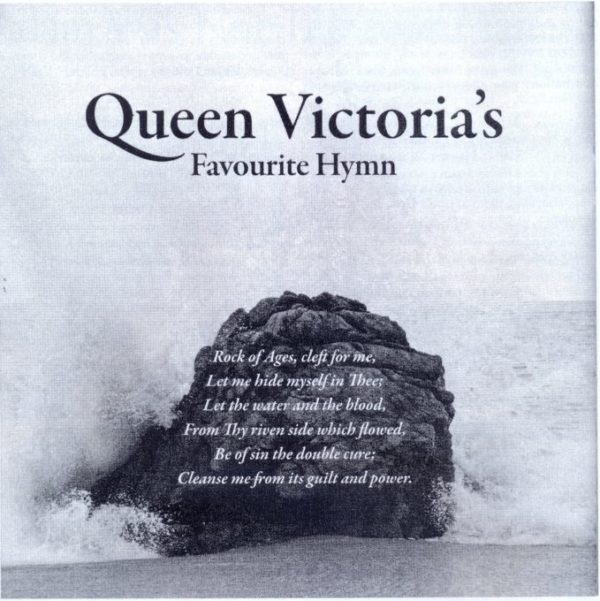QUEEN VICTORIA’S FAVOURITE HYMN
Augustus Montagu Toplady, author of this almost universal hymn, was born at Farnham, Surrey in 1740. He was educated at Westminister School and Trinity College, Dublin. It was in County Wexford, Ireland, he was converted to Christ at a service held in a barn. Of this experience he said: “Strange that I, who had so long sat under the means of grace in England, should be brought nigh unto God in an obscure part of Ireland, amidst a handful of God’s people met together in a barn and under the ministry of one who could hardly spell his name. Surely this is the Lord’s doing and it is marvellous.”
In his doctrinal debates with John and Charles Wesley, he was a harsh controversialist; but his piety was sincere and marked late in life by exalted moods.Physically he was frail and his fiery zeal wore out his body. He was transferred to Knightsbridge, London, at twenty-eight years of age but his health began to fail before he was thirty -five.
Rock of Ages is said to have been written afier he had been out for a walk and had been forced to take shelter from a thunderstorm under a cliff. It has been translated into many languages and sung at many great world events. One of the foreign dignitaries visiting Queen Victoria at her Golden Jubilee was a native of Madagascar. He was given permission to sing in her presence. She was surprised and delighted when he sang Rock of Ages; it was a favourite of hers and also of Prince Albert who whispered it when dying.
On 11 January 1866, the British steamship SS London, travelling from Gravesend, England, to Melbourne, Australia, was caught in a storm. There were 239 passengers on board when the ship began to take in water. It was overloaded with cargo and unseaworthy. Only nineteen were able to escape on lifeboats, leaving a death toll of 220. The last thing heard from the doomed ship were the voices of helpless passengers singing Rock of Ages as the ship went down.
During the Armenian Genocide in 191S, also known as the Armenian Holocaust, many Christians lost their lives. The genocide was carried out during and after World War One. Women, children, the elderly and infirm were driven by military escorts on death marches leading to the Syrian Desert. They were deprived of food and water and subjected to periodic robbery, rape and massacre. During a massacre of Armenian Christians in Constantinople they sang, in their native tongue, Rock of Ages.
The history of this great hymn cannot forget the incident of William Ewart Gladstone, Prime Minister of Great Britain from 1868 to 1894. He wrote a Latin translation of it whilst sitting in the House of Commons. The supreme Christian sentiment of the hymn had permeated his soul till it spoke to him in a dead language as eloquently as in a living one.
Augustus Toplady spent his last three years mainly in London, preaching regularly in a French Calvinist Chapel. On 11 August 1778 he died of tuberculosis and is buried at Whitefield’s Tabernacle, Tottenham Court Road, London. He went home to be with his Lord and Saviour and had no idea how far reaching his hymn would travel around the world. Toplady wrote many hymns but this is by far his most famous.
His life was short, he was not quite thirty eight when he died, but he has given us one of the most well-known of all hymns. For over one hundred years this hymn has been sung in many church buildings, inspired many people and has not lost its eternal message, its vitality or its power.
While I draw this fleeting breath,
When my eyelids close in death,
When I soar through tracts unknown,
See Thee on Thy judgement throne,
Rock of Ages, cleft for me,
Let me hide myself in Thee!
This information has been sourced from The Story of Hymns and Tunes by Brown and Butterworth, and from Wikipedia.


